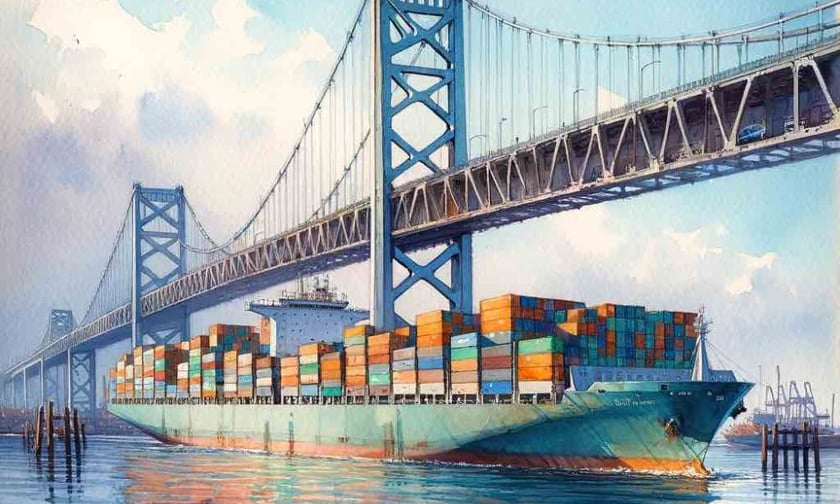

The recent collapse of the Francis Scott Key Bridge in Baltimore, an incident marked by substantial insurance losses, is expected to exert a minimal impact on the earnings of individual reinsurers.
According to Fitch Ratings, the event, despite its severity, is unlikely to alter the ratings of global reinsurers.
Projected to become the largest marine insurance claim ever recorded, Fitch noted that the incident is poised to eclipse the loss of approximately $1.5 billion from the Costa Concordia sinking in 2012. With estimated losses ranging between $2 billion and $4 billion, the final insured loss will hinge on the duration of the port’s closure and the specifics of business interruption insurance policies.
The brunt of the insured losses from this disaster will be absorbed by reinsurers within the International Group of Protection and Indemnity (P&I) Clubs’ reinsurance pool. P&I clubs, which provide liability insurance for ships, including coverage for marine environmental damage and personal injury, face a substantial collective loss.
However, the impact will be mitigated by the distribution of losses across a network of over 80 reinsurers, including more than 20 of the industry’s leading firms. These clubs are backed by $3 billion in reinsurance covering losses exceeding $100 million.
An industry-wide loss in the realm of $2 billion to $4 billion is expected to be dispersed across a broad spectrum of carriers, with no expected impact on the ratings of major reinsurers like AXA XL (the lead underwriter of the reinsurance policy), Munich Re, Swiss Re, SCOR, Hannover Re, and Lloyd’s of London.
The syndication of the reinsurance program also ensures that individual reinsurers will only bear a fraction of the gross losses. Moreover, the insurance coverage for the bridge itself is believed to be extensively reinsured, with potential recovery from the responsible parties through subrogation.
Comparable events, such as the Beirut explosion in August 2020 with insured losses of $3 billion, and the February 2023 earthquake in Turkey and Syria, with insurable losses estimated at $5.5 billion, were deemed credit neutral for large European reinsurers.
Even the significant disruptions to global shipping resulting from the March 2021 blockage of the Suez Canal, causing losses in the hundreds of millions of Euros, did not impact the credit profiles of global reinsurers.
The incident, however, will influence various business lines including marine liability and hull, property, cargo, and business interruption. In the long term, unexpected events with multi-billion dollar repercussions, whether natural or man-made, may shape insurers’ risk appetites and underwriting capacities. This, in turn, could lead to positive pricing trends and contribute to market hardening, particularly within the marine insurance sector.
What are your thoughts on this story? Please feel free to share your comments below.
